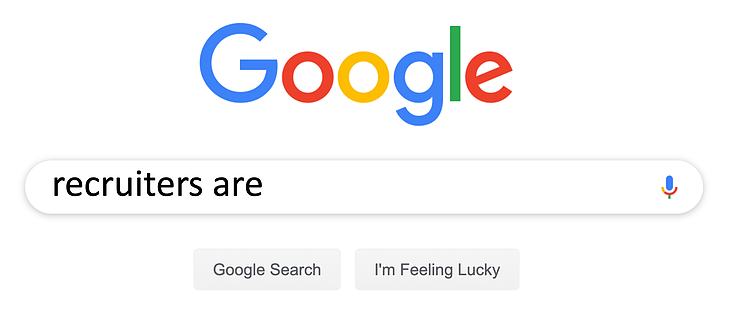So… I celebrated a birthday recently.
I’m not a big birthday kind of guy, but I do find that around this time of year I reflect on my life up to this point and I’m fascinated to see how much has changed in our society as a whole, especially since I was in high school.
I grew up in a small town just outside of Waterloo, and I hated high school.
I wasn’t popular, I had absolutely no confidence, and I pretty much went through high school with my head down.
If I had any hope of even speaking with a girl outside of school, it was a PROCESS.
I had steal the family phone book from the kitchen, go upstairs to my mom’s sewing room, plug in the 25 foot extension cord into the phone, look up her family’s phone number, dial it, run down the hall trailing the cord behind me, jump in my room, shut the door, catch my breath and hopefully accomplish all of that before running into the gate keeper on the other end of the line.
And let’s just say that if I had a dollar for every awkward “Hello Mr. ______, may I please speak with _____” conversation I’ve had that included a voice crack, I would be a wealthy man.
All of this to say: a lot has changed in our society in the last 20 years.
Now…
Literally, if anyone wants to meet a total stranger in the next 6 hours, all they have to do is open an app on their phone, swipe right a handful of times, completely objectify themselves, and bam.
Instant gratification.
I’m not highlighting that fact to pass judgement at all, I’m just saying, society is moving FAST.
I feel like society’s demand for instant gratification has pushed business to evolve rapidly, but it seems that Human Resources as a profession has struggled to keep up.
Now, I’m not here to trash on HR, this is just the reality of the world we’re living in.
You see, HR was never expected to evolve.
HR wasn’t designed to be innovative.
HR was born out of a need for compliance and mitigating risk, and we stayed transactional and administrative as a whole for the first 100 years of our existence.
It’s not HR’s fault for being behind in the times.
It’s not HR’s fault that we have so many issues with inequality in the workplace.
It’s not HR’s fault that HR hasn’t had a strategic seat at the executive table for very long.
I think we’re primed for some major evolutions in HR in the next 3-5 years, but the recent trend of HR departments rebranding themselves as “People and Culture” teams isn’t going to cut it.
You see, HR doesn’t own culture.
CEOs don’t even own culture.
From my perspective, the only thing that owns an organization’s culture is the culture itself.
Sure, HR and CEOs can drive programs and initiatives to inspire desired behaviours, but the culture decides if it will accept and adapt to change.
The culture decides if an organization’s “values” are just words written on a wall or real and worth fighting for when times get tough.
In today’s climate, I believe that organizations live and die by their cultures, and their cultures are the end result of the ecosystem the business creates for its team to live in.
I think HR has done a great job identifying, and celebrating the importance of organizational culture, but I don’t believe we’re doing enough to leverage it, and put it to work. And when you throw something like a global pandemic into the mix, it makes matters even more complicated, because businesses have never really prioritized building a remote work culture. Now the pressure is on.
Looking for ways to make your careers page more engaging? Check out one of our other blogs on the topic!
Work culture matters now, more than ever.
We’re in the golden age of technology and there’s literally an app for everything. Yet, when Covid-19 struck in early 2020, the world was caught like deer in headlights. Everything shut down and suddenly organizations had to learn to adapt to a new way of life.
The problem is that lots of companies stopped at adapting their operations, and left workplace culture hanging in the wings.
In fairness, HR had never been faced with this kind of problem before – no business with 10,000 sq.-ft. of office space in a downtown tower was equipped to transition its work culture from the boardroom to your living room.
But make no mistake, the pandemic was a litmus test that separated companies that understood and believed in their values from the ones who coined some good-sounding verbs and adjectives to help them look relevant.
Even before the pandemic forced everyone out of the office, there were some differing views on what culture really was. Before, when you saw culture and team-building on a job posting or a career page, it might have meant a bottomless beer fridge, a ping-pong table, snacks, bean-bag chairs and Oliver, the office Otterhound, fully decked out in SWAG as seen on Instagram.
Those days are coming to an end.
Being forced to quarantine gave people time to think about what they really wanted in a workplace and realized that the so-called ‘perks’ they were getting didn’t matter all that much to them.
Soon dawned the age of the great resignation. Employees who felt their bosses didn’t care about them, simply left.
People want work-life balance, health benefits, growth opportunities and real mentorship. They want diversity, inclusion and equity in leadership and in ideas. They want to see social responsibility, they want to see businesses with clear direction, purpose and plans to solve real world problems in their field. They want to love what they do.
So, how do we bring HR and hiring into the 21st century?
In HR, we love processes.
We love the illusion of being in control.
We typically, however, suck at sales and marketing.
The market for talent is crazy competitive, and we’re all trying to hire the same people, so we’ve had to adopt a more sales and marketing approach to talent acquisition. Here are three things I think startups, scale-ups, and companies of all sizes need to start changing, pronto:
1.Drop the HR speak and communicate like human beings.
It’s easy for HR to speak in HR speak, because that’s our language, and what we are comfortable with.
Talent, however, doesn’t speak HR.
Our careers pages, job postings and social media feeds are littered with HR speak and we’re left scratching our heads wondering why volumes of great people are not applying to our organization.
When we fail to attract a volume of the right talent when we need them, our default is to seek or accept outside help from a recruiting agency; because they know how to headhunt and source, and for whatever reason we’ve tricked ourselves into thinking that “passive” candidates are more valuable.
2. Stop throwing good money at bad, antiquated solutions.
Sourcing and headhunting is the least efficient, yet most expensive way to hire.
Sourcing and headhunting leads to pay gaps, challenges with imbalances re internal equity, and diversity and inclusion for the sake of checking an item off a to-do list (as opposed to prioritizing diversity and inclusion because it’s the right thing to do).
Sourcing and headhunting, and the “me first”, commission driven behaviours exhibited by the average third party recruiter has led to the world’s less than pristine perception of recruiters as a whole.
It blows my mind to see the sheer volume of organizations that don’t seem to have an issue with dropping $10,000, $15,000, even $25,000 per hire via a traditional third-party recruiting agency, but struggle with the idea of carving out and fighting for a budget for holistic programs and strategies involving employer branding, recruitment marketing, and employee advocacy.
3. Use talent networks and employee ambassadors to get the word out.
Companies can’t exist without the people who drive them forward. As such, every company worth its salt should have a “why”, and a group of people who work every day to answer that question.
Those stories are the things that can bring your recruitment marketing to life with little more than a monthly newsletter or a social media campaign inspired by your teammates. You can aim that content at prospective candidates and fill up your funnel without spending a penny. What you do need is commitment and passion.
I think it’s time for HR to rethink the dynamic between HR and culture.
I think it’s time for HR to start making some withdrawals from the organizational culture bank account that we’ve been so focused making deposits into.
Instead of relying on recruiting agencies that are trying to solve chronic problems with acute solutions, imagine a world where attracting talent wasn’t a sole person or team’s responsibility, but a shared responsibility with everyone in the business.
Imagine a world where each and every employee was inspired, educated, empowered, equipped, and rewarded for playing a proactive role in helping the business attract great people.
Imagine a world where technical teams were proactively involved in attracting other technical talent before a reactive need arose.
Imagine a world where sales teams not only carried a quota for revenue, but also carried a quota for introducing the business to other great people that would add to the organization’s culture.
Imagine a world where the responsibility and load of attracting awesome people came off of HR’s shoulders, and spread across the shoulders of each member of an organization’s team.
This isn’t just about leveraging the power of numbers, but also leveraging the impact of credible messaging from credible sources.
We’re all sick of getting pummeled with advertising that’s been so diluted and polished that it truly speaks to no one but the people that created the noise in the first place.
We’re all tired of getting flooded with “I came across your profile and…” InMails from Recruiters trying to pitch jobs we’re not remotely interested in and/or qualified for.
Don’t even get me started with how we all feel about receiving connection requests and pitches.
The fact of the matter is, we’re living in a world of instant gratification, but we’re trying to solve today’s recruiting challenges with yesterday’s best practices.
We’re hitting the talent market with messaging that’s written in the wrong language and sent from the wrong sources.
We’re trying to hack at the leaves of our hiring challenges instead of taking a moment to consider the root cause of our hiring challenges.
But, if you believe your organization’s culture is your differentiator; if you believe that your organization’s values are real and lived by each and every one of your employees – you can change your hiring outcomes by changing your approach to recruiting.
You don’t need recruiters.
You simply need a shift in mindset, a mechanism to activate your employees, and the confidence to make a withdrawal from your organizational culture’s bank account.
If your organization’s cultural health is strong, you’ll be off to the races.
If it’s not, you’ve got bigger problems.
Want to learn how to get started?
Contact us, we’d be happy to help.
J
*updated Jan, 2022*











